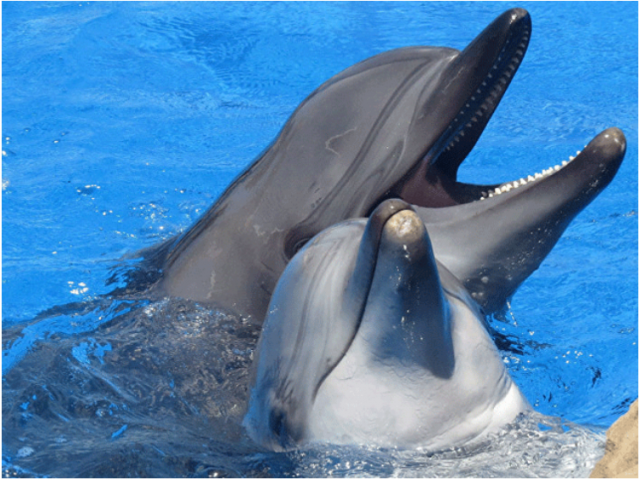Dolphins imported from Ukraine for entertainment shows die in captivity
The four aquatic mammals were imported in the year 2000 by a private company

The dolphins brought to Pakistan, in the year 2000, from Ukraine for entertainment shows in the country have died in captivity, it emerged on Tuesday.
The four dolphins were initially brought to Lahore by a private company along with two sea cats, which have now been sent back to the easter European country.
A private company that had organised the dolphin show in Karachi had entered into an agreement with two companies from Russia and Ukraine to import the aquatic mammals in 2000, with two males and two female dolphins along with two sea cats eventually imported.
As the Covid-19 pandemic raged across the world, Pakistan also went into lockdown and entertainment venues were closed. However, the organisers claimed they continued to feed the dolphins daily and a foreign doctor was also present to ensure their well being, but the aquatic mammals died one after the other.
Read: Ban on animal fights reinforced
According to the organizers, the daily cost of feeding the fish was Rs20,000. The dolphins were accompanied by trainers from Russia and the foreign team was given a $5 share for each show ticket. Tickets for the show were priced in three categories of Rs800, 1000, and 2500.
The import permit for the dolphins and sea cats in Lahore was issued by the Punjab Wildlife Department. However, some organisations working for the welfare of animals had raised objections.
Since Pakistan is a member of the Convention on International Trade in Endangered Species (SITES), it obliges the government to ensure that no animals or birds are caught or imported from wild habitats in Pakistan, and those that have been imported must be kept in optimum environments.
“Our job is to ensure the wellbeing of the wild animals and birds being brought to Punjab, from any other province or from abroad and to check where it was bought from, by which importer, and where the animal will be kept," said District Wildlife Officer for Lahore Tanveer Ahmad Janjua.
The wildlife officer added that the imported dolphins and other fish met legal requirements and since the fish were the private property of the importers, the department could not inquire into their deaths.
Dr Azmi Khan, a WWF member and wildlife biologist, says entertainment shows of rare species of animals should not be allowed and such measures are discouraged internationally.
“Many countries, including India, France and Canada, have banned dolphin captivity”, Dr Khan stated adding that “keeping dolphins in captivity and playing with them increased their mortality rate and reduces their life span by half”.
According to experts, a dolphin is a hyper-social animal and can spend its entire life mourning the loss of a mate. As there is no major artificial breeding centre for dolphins in the world at the moment, this process is causing a rapid decline in their population.
According to Dr Azmi, captive dolphins which perform various acrobatic tricks for entertainment also have their reproductive capacity affected.
Read: IHC issues stay against import of rare breed animals
“In the high seas, dolphins travel hundreds of miles daily in search of prey, but in an aquarium, they have no choice but to eat dead fish and swim in endless circles inside their ponds. These conditions lead to their death”, Dr Azmi explained.
He added that captive dolphins are also exposed and prone to human infections, bacteria and chlorine, and suffer from stress-related illnesses.
Dr Muhammad Hafeez-ur-Rehman, the Chairman for the Department of Fisheries and Aquaculture, University of Veterinary and Animal Sciences, said the aquatic mammals require specific water, temperature and food to survive. Therefore, the deaths of dolphins may have been due to a lack of salinity, improper temperature and food in the pools built for them.



















COMMENTS
Comments are moderated and generally will be posted if they are on-topic and not abusive.
For more information, please see our Comments FAQ